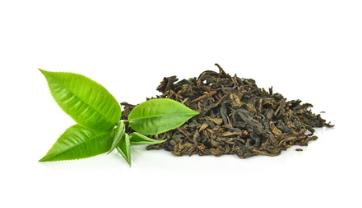Tea is used as a popular beverage worldwide and is made from the processed leaf of Camellia sinensis. Depending on the development of the processed or harvested tea leaves, the types of tea are black (fermented), green (non-fermented), and oolong (semi-fermented). Tea contains polyphenols and other components that can reduce the risk of chronic diseases such as cancer, cardiovascular disease, arthritis, and diabetes. Since ancient times, drinking tea has been considered a health-promoting habit. Modern medical research provides the scientific basis for this belief. At present, the International Standardization Organization-Agricultural Food Technology Committee Tea Subcommittee has formulated clear international standards and testing methods for tea to maintain the reputation of tea, promote the prosperity of the tea market, and protect the interests of consumers.

As a leader in tea testing, Lifeasible offers a wide range of capabilities and testing services for various tea industries. Our tea testing services include but are not limited to:
- Tea Physical and Chemical Testing
- Water content
- Net content
- Non-tea impurities (tea stems, tea flowers, etc.)
- Ash content (total ash, water-soluble ash and solution alkalinity, acid insoluble ash)
- Tea crude fiber
- Tea powder and broken tea content
- Tea ground sample dry matter content
- Volumetric weight test
- Compact stacking density test (compressed tea)
- Free flowing stacking density (solid instant tea)
- Tea particle size
- Tea Hygiene Testing
- Tea pesticide residue testing (including glyphosate, organophosphorus pesticides, hexachlorobenzene, DDT, dicofol, cyhalothrin, bifenthrin, cypermethrin, deltamethrin, methamidophos, leuconazole, dichlorvos, fenitrothion, quinpirole, etc.)
- Heavy metal testing (lead, copper, chromium, cadmium, mercury, arsenic, and fluoride)
- Additive testing (artificial colors such as lemon yellow, amaranth red, carmine, sunset red, bright blue, erythrosine, and sulfur dioxide)
- Rare earth content (such as lanthanum, cerium, and praseodymium)
- Anthraquinone
- Toxins (aflatoxin)
- Tea Microbiology Testing
- Total number of colonies
- Bacteria testing (including coliform, mold, yeast, beta-hemolytic streptococcus, corynebacterium, salmonella, shigella, staphylococcus aureus, and commercial sterility testing)
- Tea Nutrient Testing
- Total free amino acids
- Total sugar content
- General metal nutrients (e.g., iron, potassium, calcium, zinc)
- Tea unique nutrient testing (e.g., flavonoids, polyphenols, catechins, alkaloids, caffeine, theaflavins)
- Tea Composition Analysis
- Tea water leachate determination (including principal components, full composition analysis, and analysis of unknowns)
- Aroma composition analysis
- Extract detection
- Graphical analysis
The Types of Tea We Can Test
- Green tea
- Black tea
- Herbal tea
- Oolong tea
- White tea
- Yellow tea, etc.
Considering all tea testing parameters, we test almost all types of teas and perform step-by-step analysis according to procedures and set criteria.
We can continuously measure hazards and continuously improve processes. Our services or solutions are popular in tea production, distribution, and trading activities, and scientific research. We look forward to working with you, and you will benefit from our one-stop service, from testing and reporting to the highest standard of post-analysis. For more information or to discuss in detail, please contact us.
For research or industrial raw materials, not for personal medical use!
